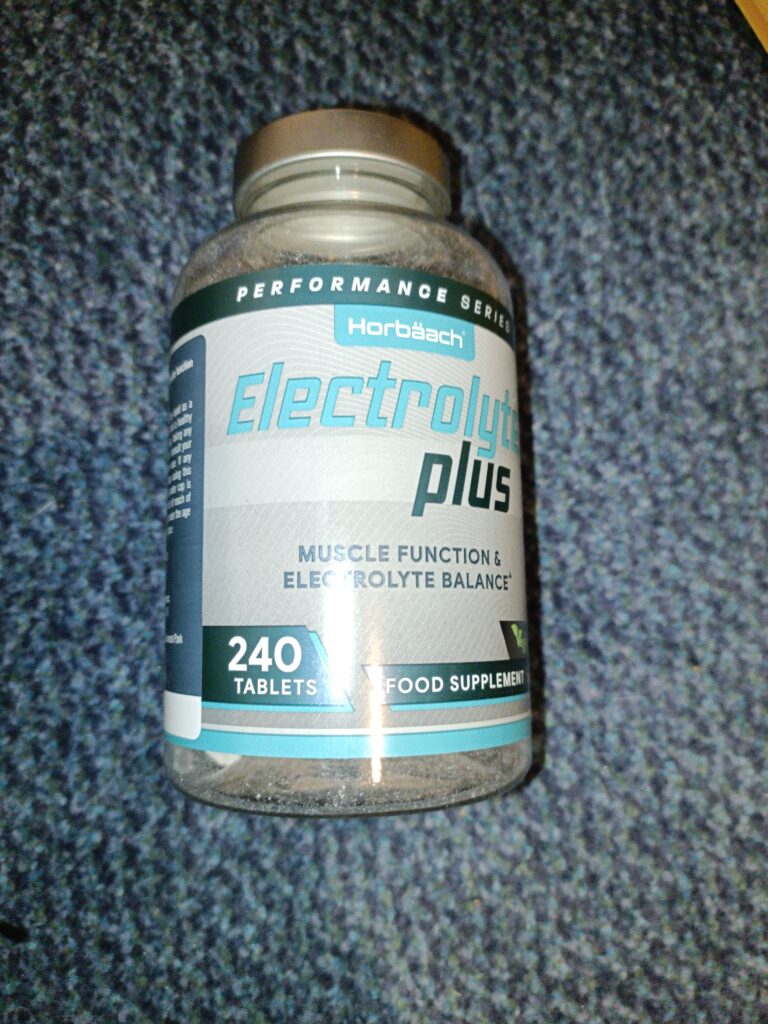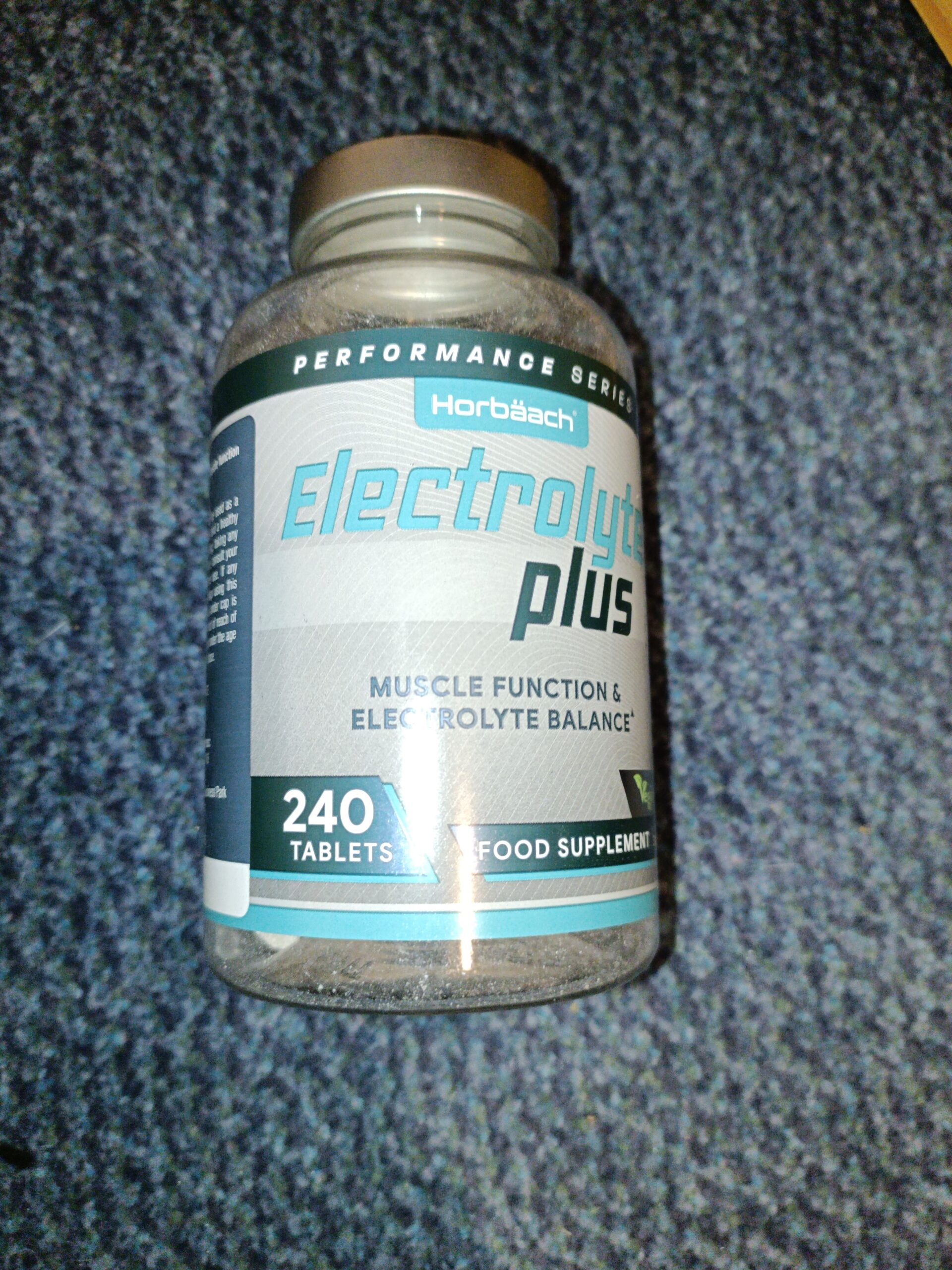Electrolytes are essential minerals that play a critical role in maintaining the body's fluid balance, nerve and muscle function, and overall health. For runners, electrolyte supplementation can help improve performance, prevent cramping and dehydration, and aid in recovery. However, like any supplement, electrolytes have their benefits and limitations.
Benefits of Electrolyte Supplements for Runners
Benefits of electrolyte supplementation for runners:
- Replenishes lost minerals: During intense exercise, the body sweats and loses essential minerals like sodium, potassium, and magnesium. Electrolyte supplementation can help replenish these minerals, maintaining proper fluid balance and reducing the risk of dehydration.
- Improves performance: Electrolytes aid in nerve and muscle function, and proper hydration can improve endurance, allowing runners to perform better and for longer periods.
- Prevents cramping: Electrolyte imbalances can lead to muscle cramping, especially during long-distance running. Adequate electrolyte supplementation can help prevent these cramps, allowing for more comfortable and efficient running.
- Enhances recovery: After a long and intense workout, the body needs to recover and repair. Electrolyte supplementation can aid in this process, ensuring that the body has the necessary minerals to repair damaged tissues and restore hydration levels.
Limitations of Electrolyte Supplements for Runners
Limitations of electrolyte supplementation for runners:
- Overconsumption: While electrolytes are essential, consuming too much can lead to imbalances and potentially harmful effects. It is important to monitor intake levels and not exceed recommended dosages.
- Cost: High-quality electrolyte supplements can be costly, and some runners may not be able to afford them regularly.
- No substitute for proper nutrition: Electrolytes are essential, but they should not replace a healthy and balanced diet. Runners should still aim to consume a range of nutrients from whole foods to support overall health and performance.
Summary of Electrolyte Supplements
In conclusion, electrolyte supplementation can be a useful tool for runners to improve performance, prevent cramping and dehydration, and aid in recovery. However, it is crucial to monitor intake levels, consider the cost, and remember that electrolytes are not a substitute for proper nutrition.

Suggested doses of electrolytes
The recommended dosage of electrolytes for runners can vary depending on the individual's body weight, sweat rate, and exercise intensity. It is important to consult with a healthcare professional or a sports dietitian to determine the appropriate dosage for an individual's specific needs. However, here are some general guidelines for electrolyte dosages for runners:
Sodium: Sodium is the most crucial electrolyte lost during sweating, and runners need to replenish it adequately. The American College of Sports Medicine (ACSM) recommends consuming 500-700 mg of sodium per liter of fluid during exercise lasting longer than an hour (1). This recommendation can vary depending on the individual's sweat rate and the environmental conditions, such as heat and humidity.
Potassium: Potassium plays a role in muscle and nerve function, and runners can lose potassium through sweat. The recommended daily intake of potassium for adults is 2,500-3,000 mg (2). During exercise, runners can aim to consume 200-400 mg of potassium per hour (1).
Magnesium: Magnesium is involved in energy metabolism and muscle function. The recommended daily intake of magnesium for adults is 320-420 mg (3). Runners can consume 100-200 mg of magnesium per hour of exercise to help replenish any losses through sweat (1).
Calcium: Calcium is essential for bone health, and runners may lose calcium through sweat. The recommended daily intake of calcium for adults is 1,000-1,200 mg (4). However, calcium supplementation during exercise is not typically necessary, as sweat losses are generally low (1).
As with any supplement, it's important to talk to your doctor before taking glucosamine to ensure that it is safe and appropriate for you. They can also provide guidance on the appropriate dosage and help monitor for any potential side effects or interactions with other medications.
References for suggested doses
References:
- American College of Sports Medicine. (2017). ACSM's Guidelines for Exercise Testing and Prescription (10th ed.). Wolters Kluwer.
- National Institutes of Health. (2021). Potassium Fact Sheet for Health Professionals. https://ods.od.nih.gov/factsheets/Potassium-HealthProfessional/
- National Institutes of Health. (2021). Magnesium Fact Sheet for Health Professionals. https://ods.od.nih.gov/factsheets/Magnesium-HealthProfessional/
- National Institutes of Health. (2021). Calcium Fact Sheet for Health Professionals. https://ods.od.nih.gov/factsheets/Calcium-HealthProfessional/
Buying Electrolyte Supplements
Scientific Study References
There are several studies that have investigated the effectiveness of electrolyte supplementation for runners. Here are some references to studies that have been conducted on this topic:
- Baker, L. B., Rollo, I., & Stein, K. W. (2017). Acute Effects of Sodium Phosphate Supplementation on Blood Pressure, 20-km Time Trial Performance, and Fluid Balance in Male and Female Runners. International Journal of Sport Nutrition and Exercise Metabolism, 27(2), 112–120. https://doi.org/10.1123/ijsnem.2016-0206
This study investigated the effects of sodium phosphate supplementation on blood pressure, 20-km time trial performance, and fluid balance in male and female runners. The results suggested that sodium phosphate supplementation could improve time trial performance and fluid balance.
- Jeukendrup, A. E., & Jentjens, R. L. P. G. (2000). Oxidation of Carbohydrate Feedings During Prolonged Exercise: Current Thoughts, Guidelines and Directions for Future Research. Sports Medicine, 29(6), 407–424. https://doi.org/10.2165/00007256-200029060-00001
This review article discusses the importance of carbohydrate and electrolyte intake during prolonged exercise. The authors suggest that electrolyte supplementation, along with carbohydrate supplementation, can help maintain fluid balance and prevent dehydration and electrolyte imbalances.
- Maughan, R. J., & Shirreffs, S. M. (2010). Development of individual hydration strategies for athletes. International Journal of Sport Nutrition and Exercise Metabolism, 20(6), 457–472. https://doi.org/10.1123/ijsnem.20.6.457
This review article discusses the importance of hydration strategies for athletes, including electrolyte supplementation. The authors suggest that individualized hydration strategies, including electrolyte intake, can help optimize performance and prevent dehydration and electrolyte imbalances.
- Casa, D. J., Armstrong, L. E., Hillman, S. K., Montain, S. J., Reiff, R. V., Rich, B. S., Roberts, W. O., & Stone, J. A. (2000). National Athletic Trainers' Association Position Statement: Fluid Replacement for Athletes. Journal of Athletic Training, 35(2), 212–224.
This position statement from the National Athletic Trainers' Association discusses fluid replacement strategies for athletes, including electrolyte supplementation. The authors suggest that athletes should consume fluids containing electrolytes to maintain fluid balance and prevent dehydration and electrolyte imbalances during exercise.
Overall, these studies suggest that electrolyte supplementation can be effective for runners in maintaining fluid balance, improving performance, and preventing dehydration and electrolyte imbalances.
Consult Your Healthcare Professional
While these studies provide some evidence of the potential benefits of HMB supplementation for runners, more research is needed to fully understand its effects on this population. It is important for runners to consult with a healthcare professional before starting to use HMB or any other supplement.
